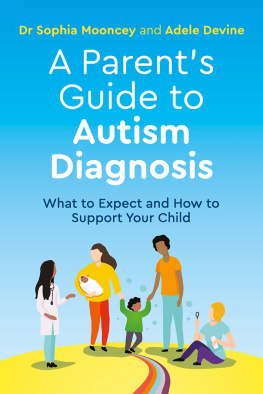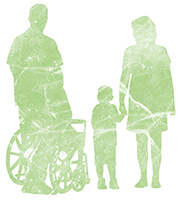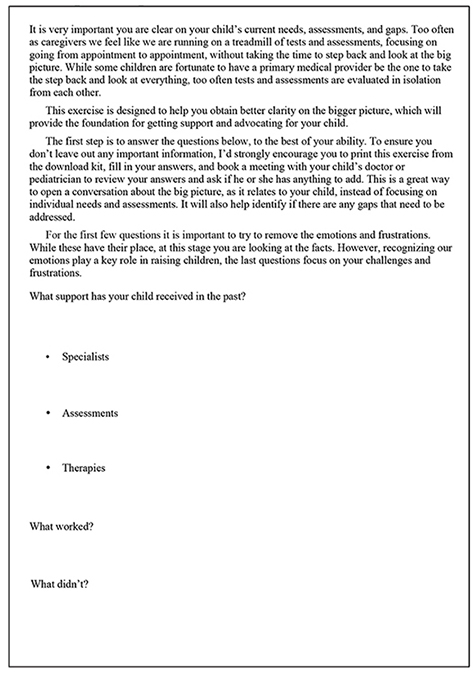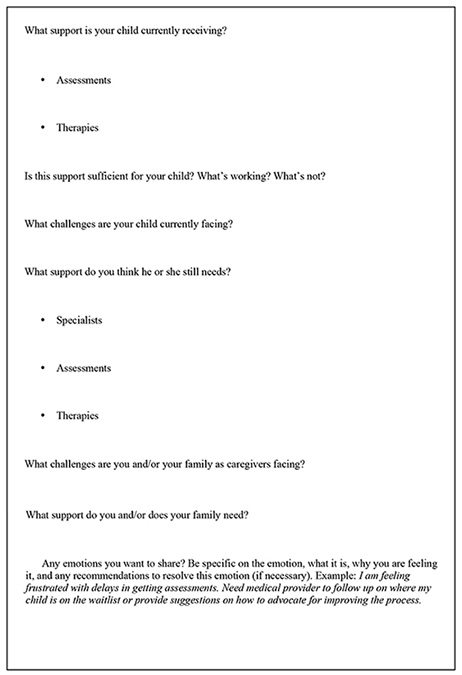Preface
I wrote this book at the prodding of friends who have listened to my patient advocacy stories and told me they wished they had the strength to advocate for their children. Many of the people Ive talked to while writing this book have said they havent advocated in the past, as they didnt think their voice would be heard. Or, because they felt intimidated by doctors and specialists.
I realize that the term patient advocacy means different things to different people. It can also be overwhelming, intimidating, and a barrier unto itself. My hope in writing this book is to take some of the mystique out of patient advocacy and give caregivers some practical advice and tools so they can advocate for their children.
This isnt about becoming a champion fighter, not taking no for an answer, and becoming yet another roadblock to your childs care. Rather, it is about realizing the role you play in your childs journey and supporting him or her along the way.
Instead of being intimidated by medical staff, realize they have a role to play in caring for your child, as do you. Each person who is involved in your childs care is a member of their support team, with some members having bigger roles to play than others.
As your childs parent or caregiver you have the biggest role of them all. And advocating for your child is part of the responsibility you have in caring for your child.
As you read this book, I would recommend having a notepad beside you to scribble down your thoughts or to highlight questions you want to ask your childs medical team.
Ive also included some exercises and questions throughout the book (they are also available on the download kit if you want to print copies), to help you dig a little deeper into the support you and your child will need on this journey of patient advocacy.
If there is one takeaway I want you have when youre done reading this book, it is to know that you are not alone. While there may be some lonely days in your journey, please know there are other parents and caregivers who are feeling the same emotions and have encountered similar roadblocks or challenges.
Dont be afraid to share your frustrations, fears, and successes with your friends, family, medical team, and other parents. It is through sharing our stories that we can help each other and make real change.
I wish you the best of luck in your journey of not only advocating for your child, but also raising your important human being.
Introduction
Welcome to the club of parents and caregivers who are raising a child with medical, developmental, physical, and/or mental needs above and beyond the norm. While the spectrum of needs from child to child is broad, and the challenges vary, what is common is the emotions and frustrations parents and caregivers face as they make this journey with their child.
The purpose of this book is to share with you some knowledge and advice from not only a parent who is making this journey, but also insights from other parents, medical providers, and educators. My hope is as you read this book, you will build the confidence to know that you can advocate for your child as well as pick up some tools to help you along the way.
My hope is also that it will open up conversations with your friends, family, and medical support team. If a certain point resonates with you, put the book down, make some notes, and take the time to talk out your thoughts with someone on your support team.
Too often we put on a brave face and dont let those around us truly know the struggles we are facing, the range of emotions we are feeling, and, most importantly, how they can help our child and us in this journey.
When we first embarked on the diagnosis path for our child, my husband and I met with our family doctor to discuss the most recent test result. The doctor put down the test results, pulled his chair closer to us, looked us in the eyes, and said, We will love him through this. I often reflect on those simple words of advice and this message has helped me through many rough days of advocating for and raising my son.
This same doctor has also been open in telling me when I need to reach out for help. When Im in the thick of an issue, exhausted and emotional, he will tell me not to forget to tap into my support system and not only ask for help, but accept the help that is given. It seems like simple advice when youre removed from the problem, but, it is hard advice to follow when you are struggling.
As you read through this book know that you are not alone. There are many parents and caregivers feeling the same emotions, struggling with similar challenges, and feeling they are alone in this journey. Patient advocacy is not just about fighting for your child, but also about building up and being part of a community; a collection of voices that can make a bigger change.
How big your community is and how many voices can speak together will depend on your childs diagnosis or needs, where you live, and your personal situation. Do not dwell on how loud of a voice you can make, but rather how best you can work with others to speak up and voice a concern. It is a much less isolating journey if you have people to walk beside you and support you and your child.
For some of you, this book will be the first step on this journey. Others may be further along the path in advocating for a child. What we all have in common is our love and commitment to supporting our children as we make this journey together.
Chapter 1
See the Big Picture: Understand Your Childs Needs
The first step in advocating for your child is to take a step back and look at the big picture. This can be a very challenging and emotional step. It is basically taking a snapshot of who your child is at this moment and summarizing what you know about his or her needs and condition. This includes listing any challenges (examples: speech delay, hearing loss, behavioral issues), summarizing any diagnosis, as well as creating an inventory of his or her treatment and medical support team (family doctor, speech therapist, occupational therapist). I have included Exercise 1 for you to work through as you read this chapter, in the book and on the download kit if youd like to print it.
Exercise 1: Looking at the Big Picture
1. Start to Think about Your Childs Support Team
It is important to realize that advocating for your child is a team sport, not individual competition. As dedicated and passionate as you may be about your child, you will need a medical team supporting you in this journey. Their letters, referrals, and recommendations will be valuable resources along the way. Like every team, your childs support team is made up of a team captain (pediatrician, specialist, or family doctor), first-string support (doctors, dentist, therapists) as well as second-string support (doctors, therapists that are seen infrequently). Collectively these team members will play key roles, at different times or all together, in helping you advocate for your child.
















